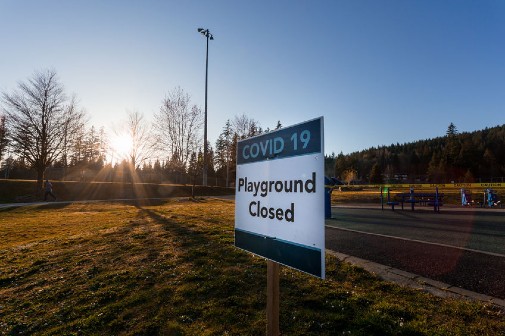New research projects announced focusing on the social implications of Covid-19
Posted on 23 April 2020

One will look at the impact of Coronavirus on families on low incomes and the other will focus on the public's response to the emergency legal restrictions brought in to help contain the pandemic.
The first project, called Covid-19 and families on a low income, is led by Dr Ruth Patrick from the School for Business and Society. The project will investigate how families in poverty are experiencing the Covid-19 pandemic.
Pressures
Working with the Child Poverty Action Group, and using data from their Early Warning System, the team will collect real time data to inform policymakers about how effectively the social security system is responding to new pressures. The 18-month project will also use a participatory research design to enable families to share and exchange their experiences during the pandemic.
Dr Patrick said: “There is a very real risk that Covid-19 and the lockdown will harden existing inequalities, and create new ones. It is vitally important to understand how families living on a low income navigate the pandemic, and how the social security system responds and copes with the new pressures it faces.
“The project is also a collaboration with a wider group of researchers of poverty and social security from across the UK, who will together explore how to sensitively and ethically research in these new, much changed times.”
Restrictions
The second project called, Law and compliance during Covid-19, led by Dr Joe Tomlinson from the School of Law, will track the expansion of governmental powers and the introduction of restrictions in the UK in response to the Covid-19 crisis. The project will explore the significance of perceptions of rights and governmental fairness to the extent of compliance.
It aims to generate important insights into the extent to which, and the ways in which, government responses to public health emergencies must be sensitive to legal culture among the general population.
Dr Tomlinson said: “Covid-19 has created the need for quick legal change that reaches into the general public’s everyday lives in a way previously not seen. It is essential we understand not only what that legal change is but also how the public perceive it and what drives compliance.”
Crisis
The projects are two of seven nationally that have received funding from the Nuffield Foundation.
Tim Gardam, Chief Executive of the Nuffield Foundation said: “We have funded these projects to ensure the research takes place as the crisis develops, with new evidence captured week by week. In this way, the projects will increase understanding of the full extent of the social impacts of the pandemic; our aim is to identify how these might be mitigated, and to help shape a coherent and comprehensive policy response that secures the wellbeing of our society in its aftermath.”
Notes to editors:
